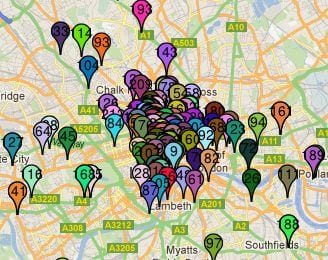UCLDH wins CSDH/SCHN Outstanding Contribution Award
By Ian Evans, on 4 June 2014
Julianne Nyhan and the other founding members (Geoffrey Rockwell, Stan Ruecker, Peter Organisciak, Megan Meredith-Lobay and Kamal Ranaweera) of A Day in the Life of the Digital Humanities (Day of DH) (2009-2012) have won the 2014 CSDH/SCHN Outstanding Contribution Award. The following description of the project and award is given on the CSDH/SCHN site:
Day of DH is an annual community documentation project that brings together digital humanists from around the world to document what they do on one day in the spring of each year. Its goal has been to have participants reflect on a fundamental question, “just what do computing humanists really do?” Participants document their day through photographs and commentary using one of the Day of DH blogs.The Day of DH initiative has received significant attention far beyond its evolving community of participants. The team published an essay on the project in Digital Humanities Quarterly. The Chronicle of Higher Education ran a story on it. Definitions of the digital humanities from the project have been republished in collections such as Debates in the Digital Humanities and Defining Digital Humanities. It has directly inspired projects such as the Day of Archaeology. It has also inspired other communities within digital humanities. The first DíaHD (Día de Humanidades Digitales) was held on June 10, 2013 for those who speak and work in Spanish and Portuguese.Day of DH has now become a centerNet initiative that moves from institution to institution. The successful transition to a sustainable international initiative is a sign of the impact of this initiative’s origins in Canada.CSDH/SCHN is honoured to commemorate this founding Canadian group and its extraordinary contribution to the global digital humanities community.
 Close
Close



